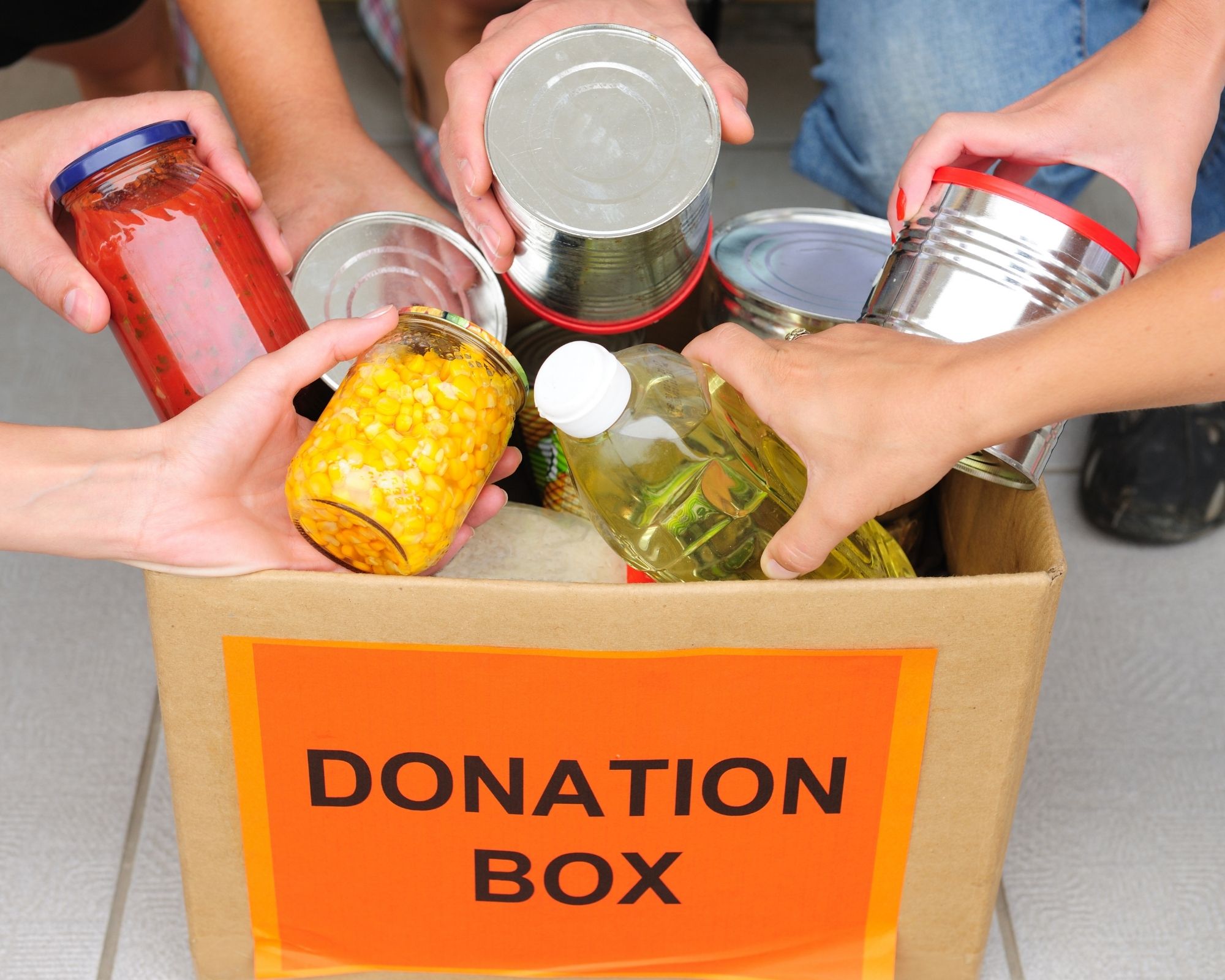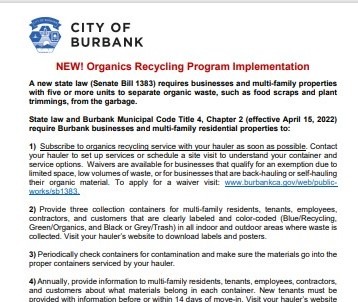For additional questions not found on the CalRecycle links or FAQ's, contact us at [email protected].

Review Requirements
Generator Requirements (PDF) (also available in Armenian and Spanish)- Subscribe to and actively participate in an organics recycling collection service or self-haul organic waste to an approved facility.
- Properly sort organic waste to keep the material free of contaminants and unwanted debris.
- Allow access to an adequate number, size, and location of containers with correct labels.
- Provide collection containers for organic waste and recyclables to employees, contractors, tenants, and customers.
- Provide indoor containers for organic waste and recyclables in all areas where disposal containers are provided for customers, except in restrooms (multi-family dwellings are exempt).
- Inspect containers for contamination.
Contact your Waste Hauler or Plan to Self-haul
Contact your waste hauler:
Waste haulers will provide compliance guidance, technical assistance, educational materials, and staff training. It is important to work with your hauler to assess the types of organics service you will need, as well as ask how to “right size” containers and service levels.
Find a waste hauler: Permitted Haulers List (PDF).
Plan to Self-Haul:
SB 1383 regulations do allow customers to self-haul their recycling and organics waste, but they must show proof of their program.
Provide Ongoing Education
Supporting your employees, tenants and customers with education, clear signage, as-needed training, and reinforcements on proper sorting rules will reduce contamination of the organic materials and avoid possible fines in the future.
Edible food donation is easier than you think! Find helpful resources to get you started.
Special Event Permit Application:
Please see this webpage on the Special Event Application Process.
SB 1383 Waste and Recycling requirements:
Please visit this webpage on SB 1383 regulations and note the following:
All public-facing receptacles must be in the appropriate colors: Recycle (blue), Trash (grey or black) and Organics/Food (green).
If no food served: Two streams (recycling and trash) must always be paired together.
Food served: Three stream food scrap collection (organics) receptacles must be paired with recycling and trash in areas where food is served; two stream in all other public facing areas.
Waste hauling and disposal bins: To ensure the materials go in the proper dumpster/cart and remains separate from trash, events must also include recycling (and organics when appropriate) disposal receptacles.
View City of Burbank’s Waste Reduction Regulations policies and note:
Polystyrene (foam and rigid # 6 plastic foodware) is prohibited.
Upon Request policy: Accessories, like utensils or sauce packets, can only be distributed to customers if they request.
Signage and Public Education:
Each receptacle must have signage to direct patrons on what items go in what container. Your waste hauler should be able to provide this, otherwise you can download the City of Burbank's signage below:- Mandatory Commercial Recycling AB 341
- Since 2012, State law has required businesses, including apartment communities/multi-family housing with 5 or more units, to recycle.
- Mandatory Commercial Organic Recycling AB 1826
- On January 1, 2022, the requirements for AB1826 were replaced by SB 1383
- View our AB 1826 Pamphlet (PDF) for additional information.
More information can be found on CalRecycle's FAQ's page with answers to the most frequently asked questions about the statewide implementation of this new law.
For questions on compliance issues, email us at [email protected].
SB 1383 Technical Assistance
For additional questions not found on the CalRecycle links or FAQ's, contact us at [email protected].











